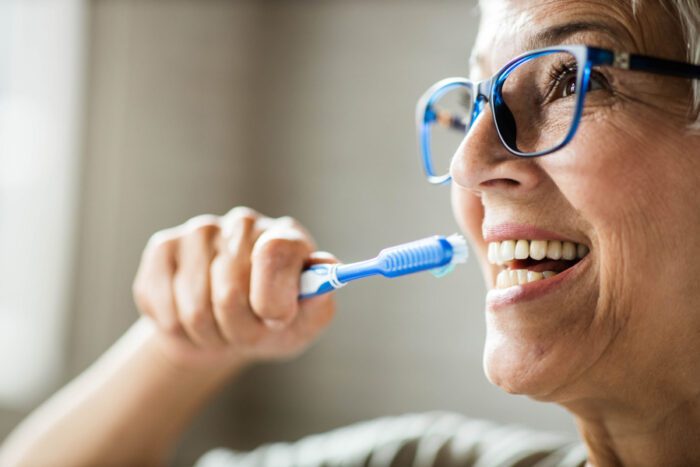Restorative dental treatment can help fix a wide range of dental concerns. From restoring cracks or fractures to protecting your tooth after a root canal, dental restorations are crucial to your oral health. When you get a dental restoration in Calgary, AB, you need to make sure you care for it properly if you want it to last long. Many dental restorations can last around ten to fifteen years with the proper maintenance and attention. Following your dentist’s aftercare instructions can help ensure your crown, bridge, or denture remains solid and healthy.

Caring for a Dental Restoration in Calgary, AB
Dental restoration technology has come a long way in recent years. Crowns, bridges, and dentures are generally more long-lasting and durable than ever before. However, they could suffer damage and wear and tear if you fail to properly care for them. Although the materials used to make restorations aren’t as affected by plaque and tartar, your remaining teeth and gums still are. Keeping up on your oral hygiene is one of the best ways to help ensure your restorations last a long time.
Cleaning a Dental Restoration
Dental Crown – If you have a dental crown, you can often brush and floss your teeth like you usually would. However, when flossing, it’s often best to pull the floss through instead of back up. Pulling up on the floss could cause your crown to loosen or even fall out.
Dental Bridge – If you have a dental bridge, you should continue to brush your teeth like you normally would. Flossing, on the other hand, can be a bit trickier. Your dentist will recommend a specific flossing tool and technique that can help you clean under your bridge without damaging it. It’s highly important that you floss around and under your bridge to protect your gums.
Denture – If you have a removable denture, it’s best to remove them daily for routine cleaning and disinfecting. If you have an implant-secured denture, your dentist will provide specific instructions for brushing and flossing.
Common Problems with Restorations
If you take good care of your dental restorations, they will often stay strong and healthy for years. However, it’s natural to occasionally come across problems caused by improper chewing, other dental conditions, or physical trauma.
Fractured Restoration – If your restoration becomes chipped or fractured, your dentist may be able to restore it. However, in many cases, you might need a new restoration to ensure your bite is strong and your teeth protected.
Restoration Comes Loose or Falls Out – Extreme pressure can cause a dental restoration to loosen or fall out, most commonly with dental crowns. If this happens, your dentist can likely reset your restoration.
Restoration Causes Pain or Discomfort – If you notice pain or discomfort while chewing or talking, it could be that your restoration has moved out of position. It may also indicate an underlying dental problem, such as gum disease. Your dentist can examine the affected area to determine the best course of treatment.
Caring for a new dental restoration is crucial if you want to extend its longevity. If you notice any problems with your restoration, call Foothills Dentistry today at (587) 410-0821 to schedule a consultation and see what treatment may be needed.
